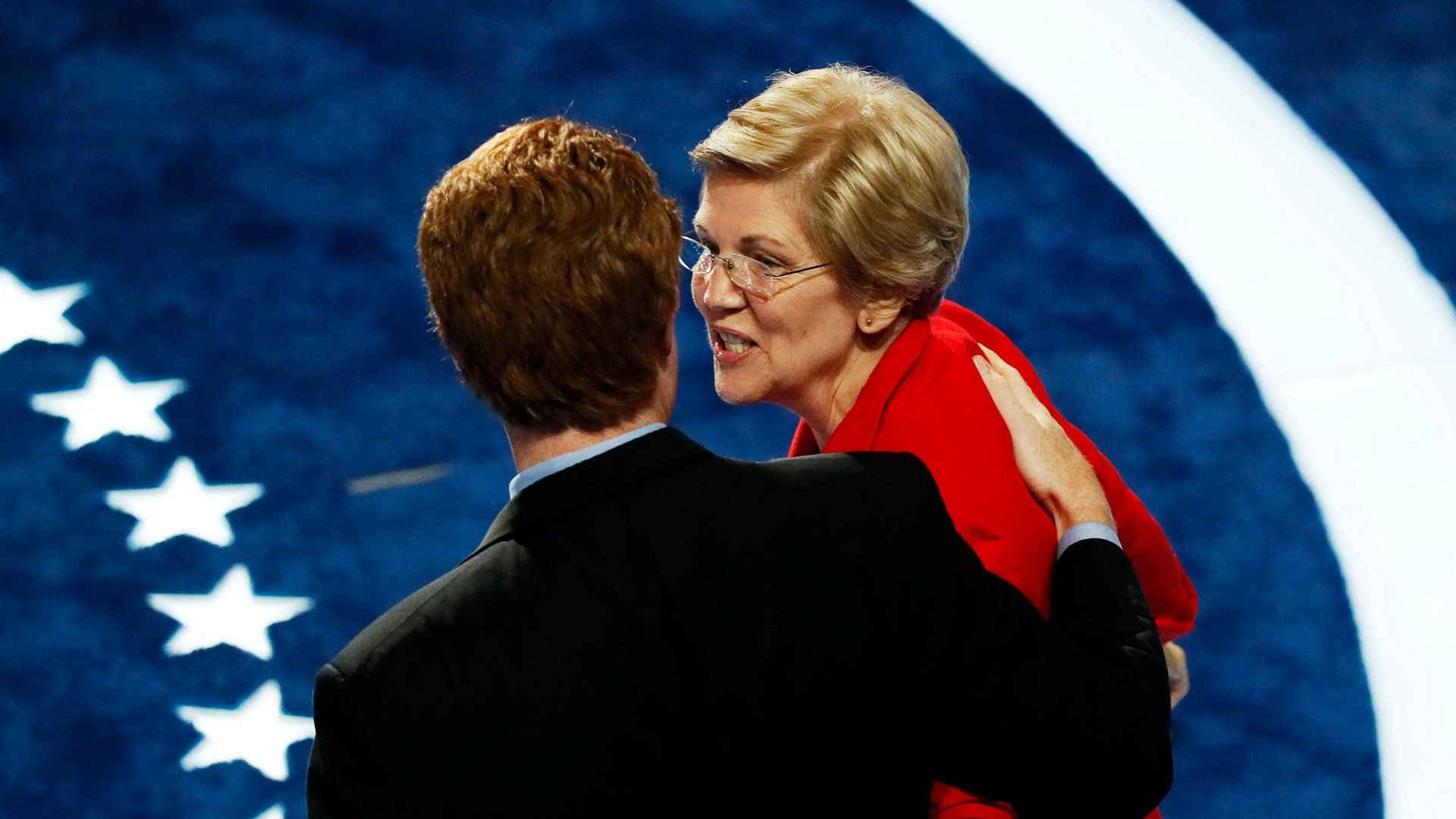“The American people are not falling for it”: Elizabeth Warren skewers Trump at the DNC
It’s easy to forget that Elizabeth Warren, called upon tonight to unite the Democratic party, became a national figure as a watchdog for the bank bailout during the 2008 financial crisis.


It’s easy to forget that Elizabeth Warren, called upon tonight to unite the Democratic party, became a national figure as a watchdog for the bank bailout during the 2008 financial crisis.
She chaired a dusty little group called the “Congressional Oversight Panel.” But even then, in 2009, when she might pull her own suitcase into an Au Bon Pain by the train station, someone would come up to her to say that “there should be a 100 more people like you. I’m a common citizen, and I’m really frightened.”
At the time, the unemployment rate was still rising and it seemed the there would be no turn around. Warren’s promise of an activist government to counter the predations of the financial sector was welcome tonic for many Americans.
Now, eight years of recovery later, Warren is a senator, not an auditor, and times are frightening again. But this current crisis—one political as much as economic—might be an opportunity for her to advance her agenda of family economic security, if she can only convince her allies that Hillary Clinton is the vessel for Warren’s views.
“I’m worried that opportunity is slipping away for people who work hard and play by the rules,” she said, arguing that working people were losing out from selfish policies passed by special interests, “but there is a huge difference between people fighting for a level playing field and people fighting to keep the system rigged.”
The ideas that Warren advanced in her writing and as the architect of the Consumer Financial Protection Bureau are closer to the mainstream of Democratic politics than ever before with Hillary Clinton’s nomination. The Roosevelt Institute, a policy shop that helped fill out Warren’s agenda, has found its own work on “rewriting the rules” of the economy cited by Clinton.
Warren has worked tirelessly to cleave the influence of the financial sector from the Democratic party, a goal epitomized by her refusal to allow Antonio Weiss, a former investment banker, to be appointed to a senior post in Obama’s Treasury department, simply because he came from Wall Street.
It’s no doubt a power she would like to exercise under a Clinton presidency—and, potentially, a chance to actually rewrite those rules. But her test now isn’t attacking bankers or their minions, it is selling the voters who value her independent streak that Clinton, she of the Goldman Sachs speeches, is the best progressive choice for president.
Despite scattered chants of “we trusted you” from Bernie hold-outs, she made the realpolitik clear: Party labels matter for getting things done. A Democrat is better than a Republican when it comes to the ideas, from expanding social security to raising the minimum wage, that she and Sanders believe will benefit working people.
And she cemented her case with her trademark exasperated attacks on Trump’s childish posing and business record.
“What kind of a man cheats students, cheats investors, cheats workers? Well, I’ll tell you what kind of man. A man who must never be president of the United States.
“Donald Trump has no real plans for jobs, or seniors, or college kids,” she said, more in sadness than in anger. ”No plans to make anything greater for anyone except rich guys like Donald Trump.”
But she made her purpose clear, warning delegates—a fair chunk of whom had spent the night booing efforts to unify the dueling Sanders-Clinton wings of the Democratic party—that “divide and conquer is an old story in America,” and it’s the strategy Trump is counting on to defeat Clinton.
“The American people are not falling for it,” Warren said. We’ll see.